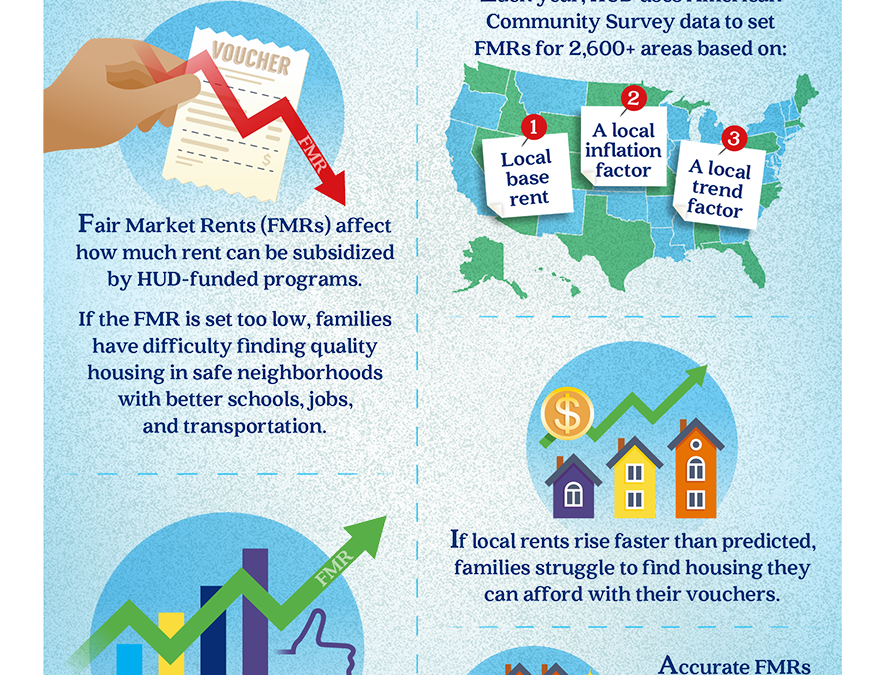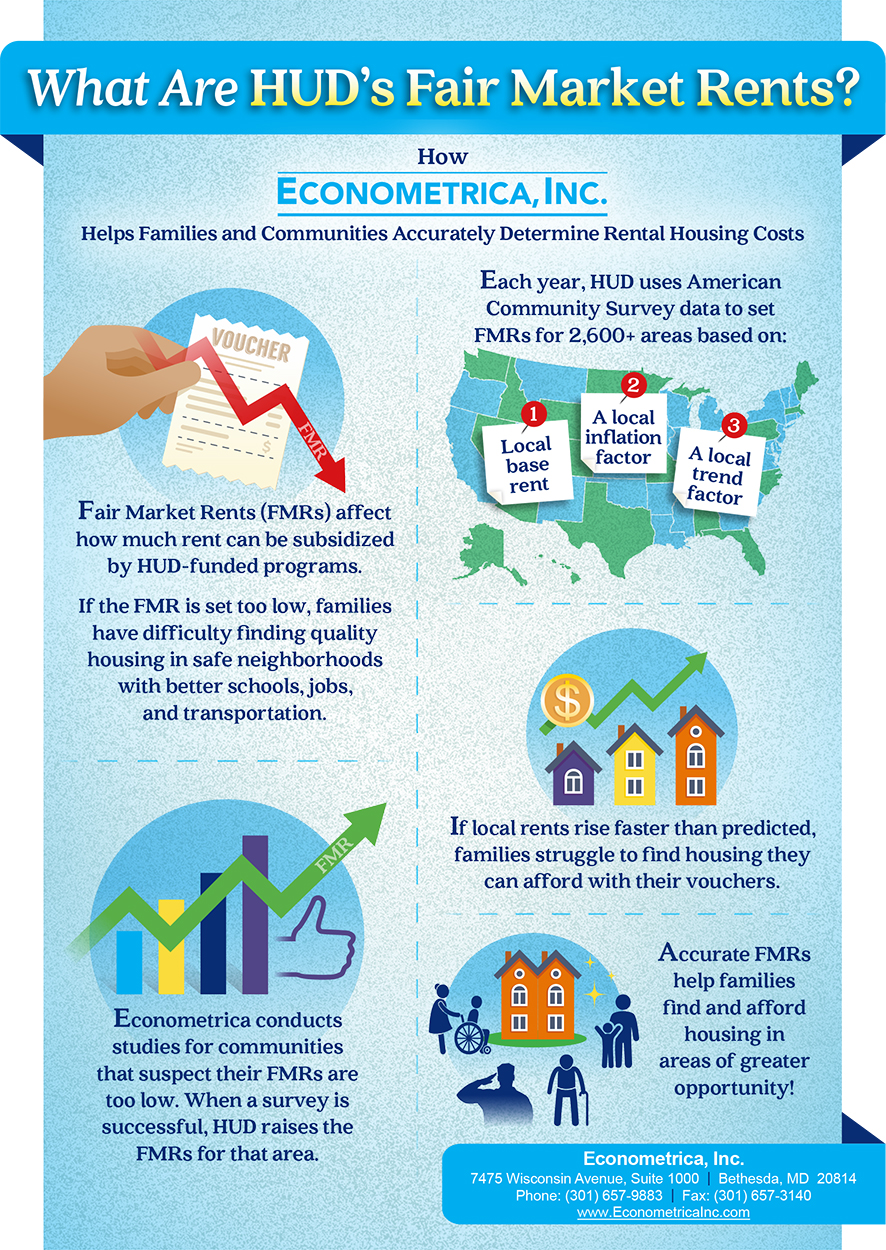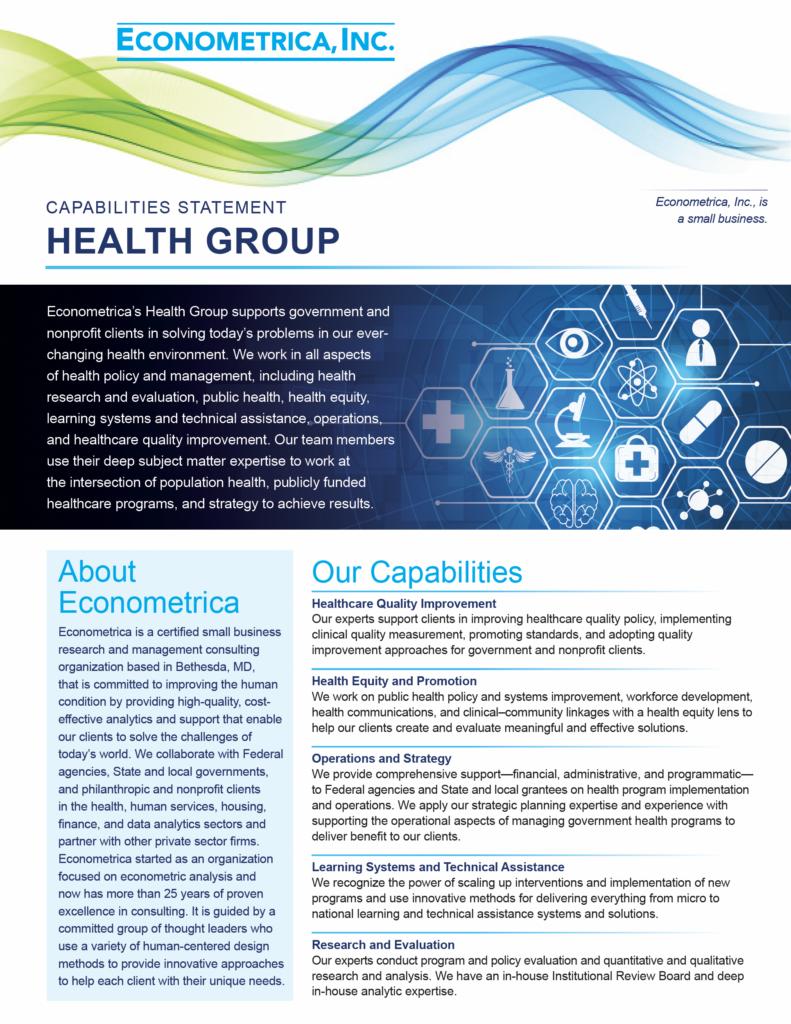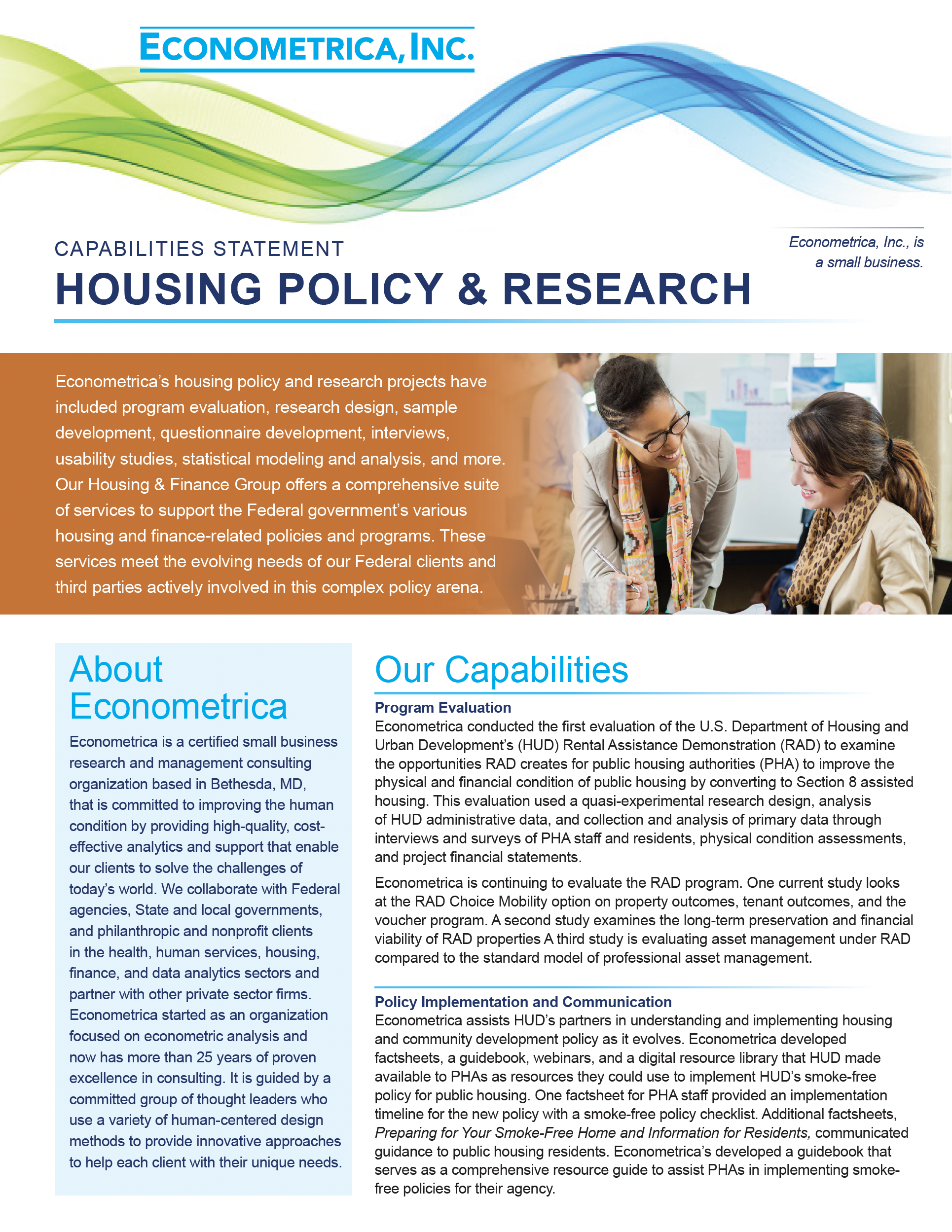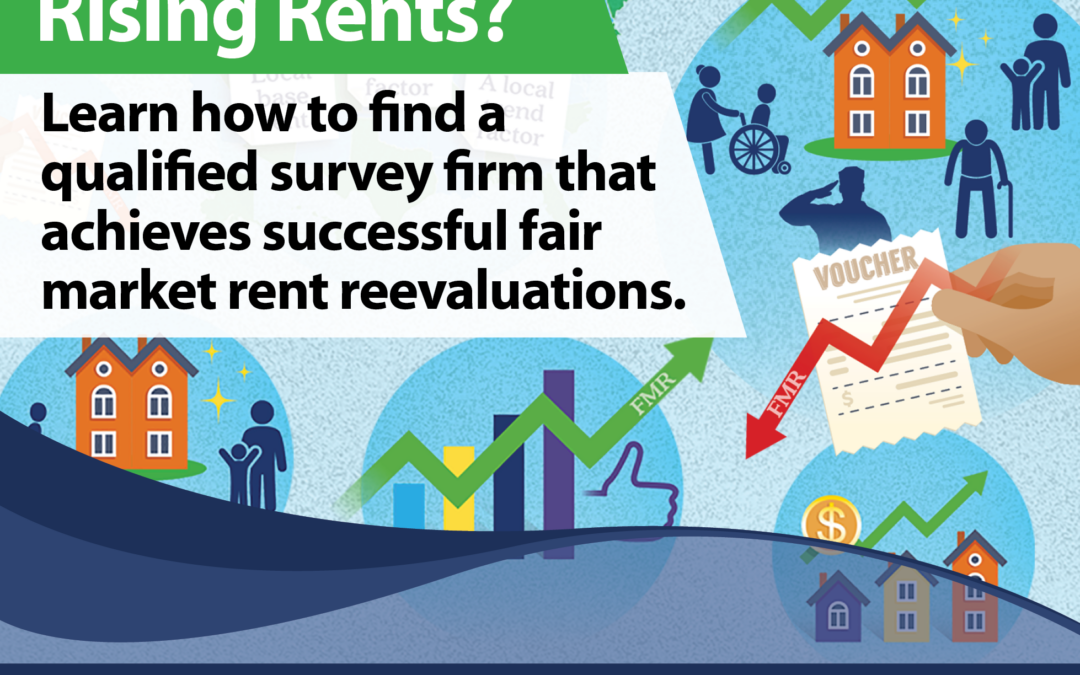
Housing Costs Rising? Learn When to Appeal a HUD FMR
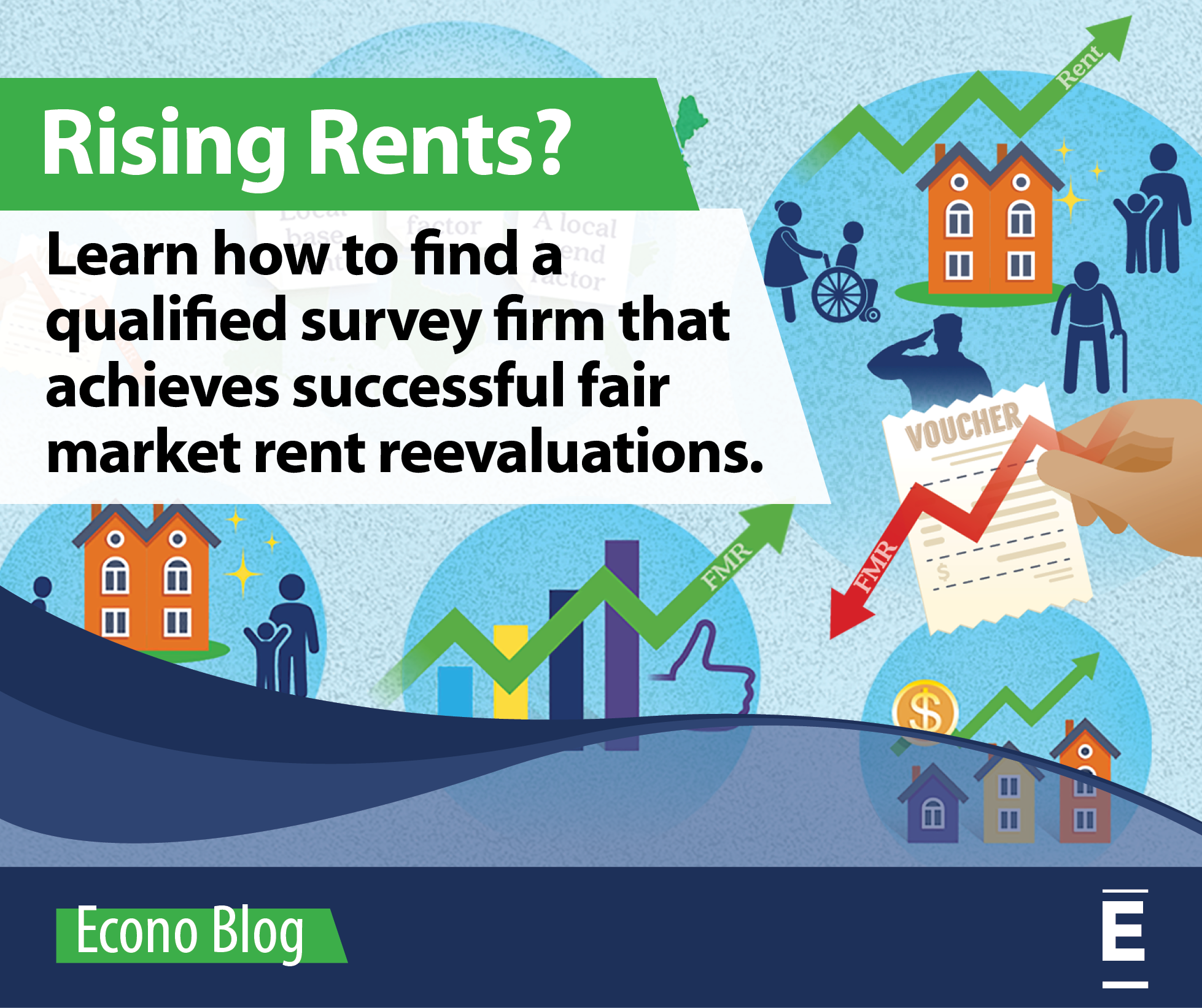
The U.S. Department of Housing and Urban Development (HUD) estimates fair market rent (FMR) for almost 2,600 areas nationwide as a basis for rent subsidy programs. When a HUD FMR fails to meet the housing needs of income-qualified residents in a community, it may be time to appeal by commissioning an FMR survey.
According to the government, a HUD FMR represents the cost to rent a moderately-priced dwelling in the local housing market. FMRs are typically determined by a predictive algorithm using data from the U.S. Census Bureau’s annual American Community Survey. When the cost of housing spikes, like it has the last few years, it can outpace the federal funding prediction methodology and the annual budgets for FMR-based subsidies.
As a result, rent subsidy payments required to be based on the FMR can fall short, leaving a gap between the maximum subsidies allowed and the actual cost of renting an adequately sized, decent, safe, and sanitary dwelling. Inadequate subsidies can lead to fewer housing choices, affect the quality of housing people can afford, and lead to fewer vouchers available for those in need.
How Do You Know When the Rental Market Is Outpacing Your FMR?
If you are a housing authority or other community-based housing organization that distributes federal housing subsidies, such as Housing Choice Vouchers, it is important to know how to request that HUD reevaluate (increase) your annual FMR. The following are key indicators that the market is far out-pacing the current HUD FMR for your area and bringing hardship to your program participants:
-
- Extended housing searches or returned vouchers: Subsidy recipients take longer than the typical 90 days to find housing or even have to turn their vouchers back in, because the pool of available and affordable rental properties narrows.
- Fewer homes to choose from: The number of landlords accepting vouchers for rental properties, based on the payment standard, decreases because landlords cannot operate their property at payment standard rents or they can easily fill their property at higher rents.
- Housing authorities are spending more per person: Providers are having to set voucher payments that push the upper threshold of what HUD allows (110% to 120% of FMR) in order to help people find available rental properties.
- People are spending more: Voucher recipients are requesting to use more than 30 percent of their income toward their rent, because the only rents they can find are above the payment standard. Thus, jeopardizing their families financial stability and/or leaving less money for other necessities.
- Waitlists are growing: If waitlists are open, which is often not the case due to the extreme demand for rental subsidies throughout much of the country, then they are growing longer as more people find themselves income qualified or spending more than 50 percent of income toward rent.
How to Find an FMR Survey Firm
To effect change, it is vital to conduct a successful FMR survey. HUD allows any FMR area housing authority to request a reevaluation of its FMR. In order to do so, the PHA must submit a valid data sample collected based upon HUD’s requirements with at least 100 qualified responses for areas with rental populations under 50,000 and at least 200 for those over 50,000. Generally speaking, at least 15,000 to 25,000 surveys are required in order to obtain 100 to 200 qualified responses. Accurate FMRs help families find and afford housing in areas of greater opportunity for safety, education, employment, and transportation. Who you select to complete the survey is also important. Look for a consultant to perform the FMR survey who has:
-
- Deep expertise: Frederick Eggers, former chief economist and deputy assistant secretary for Economic Affairs at HUD, established Econometrica’s FMR survey program.
- Customer service: Econometrica is dedicated to increasing housing opportunities for underserved populations and as a result is ready to work with communities where they are, helping them partner to work around budget issues or change methods to adjust to calendar constraints or a host of other techniques to meet the community’s ultimate goal.
- Customized solutions: Our specialists have designed and implemented successful FMR surveys for urban, suburban, and rural communities, ranging from New York City to Transylvania County, North Carolina.
- Demonstrated success: We completed half of all successful FMR reevaluations in the nation in 2022, achieving as much as a 24 percent increase in FMRs in one locality.
Fair Market Rent Surveys for Large and Small Communities
The Housing Authority of the City of Asheville (HACA) in North Carolina recently had two successful FMR appeals based on FMR survey data and reports completed by Econometrica. In 2018, HACA noted that rents in the community were fluctuating from year to year. HACA clients were finding it more difficult to find affordable housing in neighborhoods of greater opportunity. HACA engaged Econometrica to perform an FMR survey. As a result, HUD increased 2020 FMRs by 21 percent. Asheville’s rental market boom continued, and HACA engaged Econometrica for a second FMR survey in 2021. This time, Econometrica’s report resulted in a 16.6 percent increase in HUD’s 2022 FMRs for HACA.
In addition, Econometrica was able to piggyback Asheville’s most recent FMR appeal with one for a rural neighboring community that failed to obtain a successful solo appeal in the past. With a small population in general and few renters, it was difficult for Transylvania County to garner a sufficient sample size to meet HUD survey requirements. Econometrica worked with HUD and the involved PHAs to determine ways to combine rural communities like Transylvania County with FMR surveys for more populated metropolitan areas. Consequently, HUD granted Transylvania County a 19.5 percent increase in FMRs for 2022 based on our survey completed in combination with Asheville in 2021.
HUD FMR Surveys: Work With Us, Work for Us
Econometrica has 6 years of experience conducting FMR surveys and developing reports that lead to successful HUD appeals. Our team of the best and brightest in housing and community development, data science, and survey distribution collaborates to develop FMR surveys to meet the needs of your community, no matter the size. To learn more about Econometrica’s FMR survey process, contact us at HUDFMR@econometricainc.com. We will run a quick analysis to determine whether a local FMR survey makes sense for you and your community and guide you through the next steps.
If you are a specialist in housing and community development and want to expand your career, explore the benefits of working for Econometrica by visiting our careers page.

